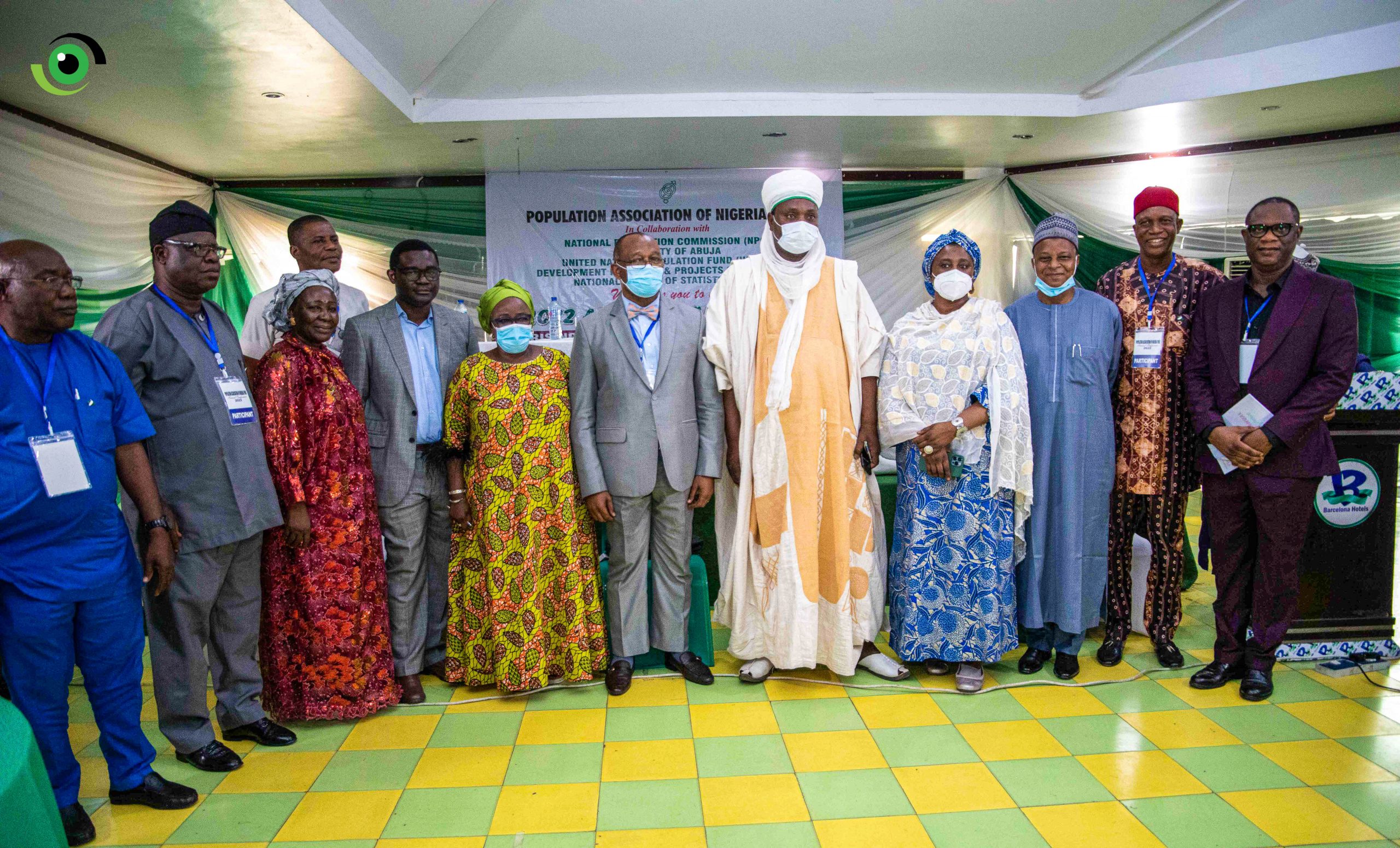By Oluwafolakemi Ajala (Lead Writer)
According to UNFPA data, Nigeria’s population as of March 2022 was 216.7 million, with a total fertility rate of 5.1 per woman. Population growth should be everyone’s concern, especially policy makers, government Ministries, Departments and Agencies (MDAs) responsible for the economy, social protection, job creation and infrastructural development.
It is against this backdrop that dRPC brought together relevant policy makers, experts and practitioners in a panel discussion titled, ‘Population and the Dividends of Demography’ at the Population Association of Nigeria (PAN) annual conference with the theme, ‘Rising Wave of Global Insecurity: Addressing Population Data Needs For Sustainable Development In The 21st Century’, organised in collaboration with the National Population Commission (NPC), University of Abuja, United Nations Population Fund (UNFPA), Development Research and Project Centre (dRPC), and the National Bureau of Statistics (NBS), held on March 22 and 23, 2022. The objective of the conference was to deliberate on strategic pathways for the implementation of the National Population Policy, as well as to catalyse policymaker action.
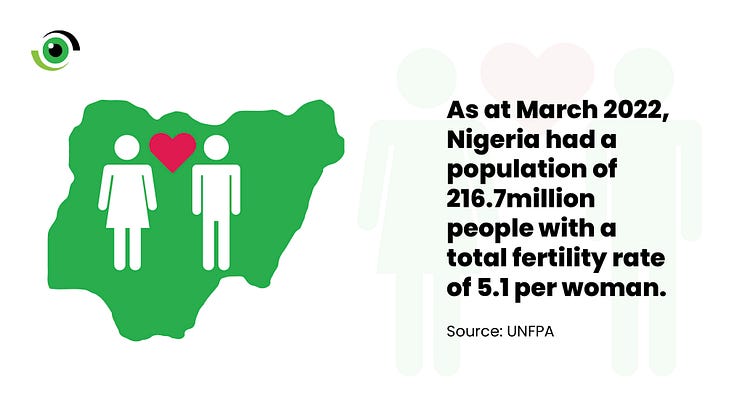
Dr Salma Anas-Kolo, Director, Family Health Department, Federal Ministry of Health expressed her concern with these numbers, “We are not comfortable with where we are. We have a large population, and we do not have the adequate capacity to meet the needs and demands of the growing population.”
Dr Anas-Kolo highlighted the Federal Government’s (FG) commitment to population management, which was shown when President Muhammadu Buhari launched the Revised National Policy on Population for Sustainable Development on February 3, 2022. Nigeria has had a number of population policies designed to facilitate good governance, strengthen her economy, assist in poverty reduction, etc. This Revised Policy addresses the inter-relationship between the population, the environment, and socio-economic factors. It also addresses reproductive health and rights, family planning and fertility management, ageing, nutrition, HIV/AIDS and other sexually transmitted infections, women empowerment, gender equality and other relevant areas.
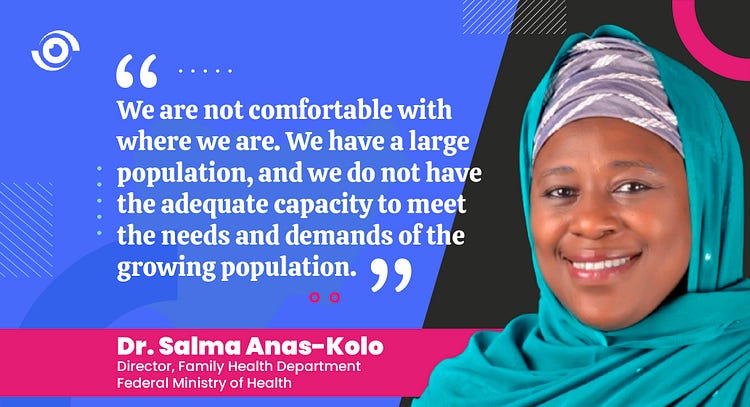
The role of the Federal Ministry of Health is to implement government policies such as these, but Dr Anas-Kolo pointed out that though policies are good, having the right policy framework will make implementation easier. When this happens, more women should have access to quality family planning commodities and services at all levels of healthcare.
Alhaji Umar Sanni-Jabbi, Sarkin Yakin Gagi of Sokoto State, and Chairman of the Association for the Advancement of Family Planning (AAFP) shared his thoughts on why there wasn’t a lot of buy-in to family planning in rural Nigeria. In his view, traditional rulers need to be involved in the communications process, as they speak the language the people understand. This echoed Dr Anas-Kolo’s submission that for policies to be effectively implemented, they must be connected to the real people and their cultural beliefs and perspectives; this means continued engagement with traditional institutions. Also, when family planning is linked to better quality of life for both mother and child, there is less resistance.
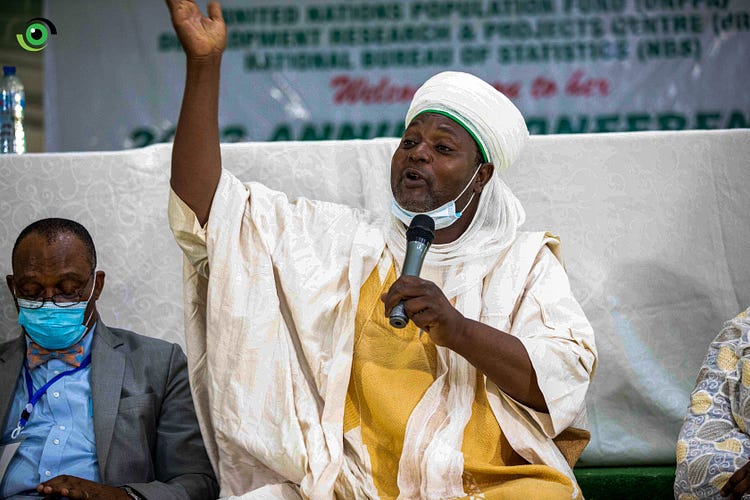
Responding to the question of Nigeria’s demographic distribution and the implications for the economy, Dr Olusesan Makinde, Managing Partner, Viable Knowledge Masters, pointed out that Nigeria has a very wide base dynamic on the population pyramid. The productive age of any population is set between 16–64 years, however, 43% of Nigeria’s population is under 15 years of age, and another 3% over the age of 65. The implication of this is a high dependency ratio.
With 75% of the nation’s population under the age of 30, and a dependency ratio of 86%, as at 2020, Dr Ejike Oji, Family Planning 2030 CSO focal person, and Project Director, Association for the Advancement of Family Planning (AAFP-PAS), declared that Nigeria is in a demographic crisis. Identifying migration, religious, and tribal conflicts as factors which are a consequence of the crisis, he highlighted seven steps through which Nigeria can transition from a demographic deficit to a demographic dividend:
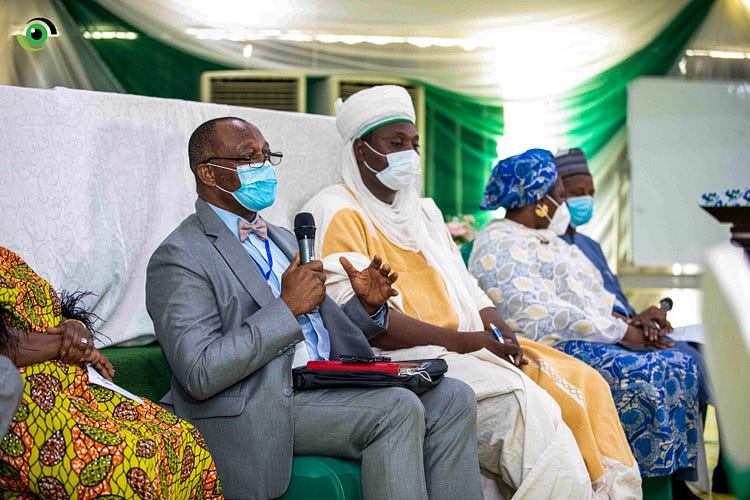
- Leadership– The Federal Government has shown commitment to population control, evidenced by the launching of the Revised National Policy on Population for Sustainable Development. Also, the FG has accepted to allocate 1% of the health budget at both national and state levels for the purchase of family planning commodities, as well as ensure that these services are accessible to all.
- Governance — More state governments need to show more commitment to ensuring that the resources needed for the procurement of family planning commodities are made readily available. When there is a disconnect between policy and action, it affects service delivery, quality purchase, demand generation, and supply networks. So far, only Lagos and Kaduna states have demonstrated leadership in this regard.
- Fertility Rate — This is achieved by providing access to free family planning to women and men, at all levels of healthcare.
- Reduction of mortality rates– Nigeria has one of the highest infant and under 5 mortality rates. This means families may have more children as they are unsure about the survival rate of their existing children. Efficient and accessible health care is critical to mitigate this.
- Introduction of relevant and appropriate education — Not everyone has the desire to pursue a degree course. Government should consider setting up vocational training schools so young people can still learn relevant skills to improve their employment prospects.
- Government must improve the ease of doing business — This will encourage local businesses, as well as attract more domestic and foreign direct investment.
- Equity, justice, fair play, and accountability
The recently released Lancet Nigeria Commission outlined how we are currently at a crossroads in Nigeria. The country’s current estimated population of 200 million is set to increase to 400 million by 2050 and 733 million by 2100. However, this assumes a decline in the average number of children per mother from the current 5.1 to 3.3 by 2050 and 2.2 by 2100.
Chief Moji Makanjuola, Executive Director, International Society of Media in Public Health, (ISMPH), stated that Nigerians need to make demands for a conducive environment where full potential can be lived up to. Although Universal Health Coverage (UHC) is a tool to drive family planning, budgetary allocations do not meet this demand, she said. The way forward? “We need to become intentional about holding our leaders accountable.”
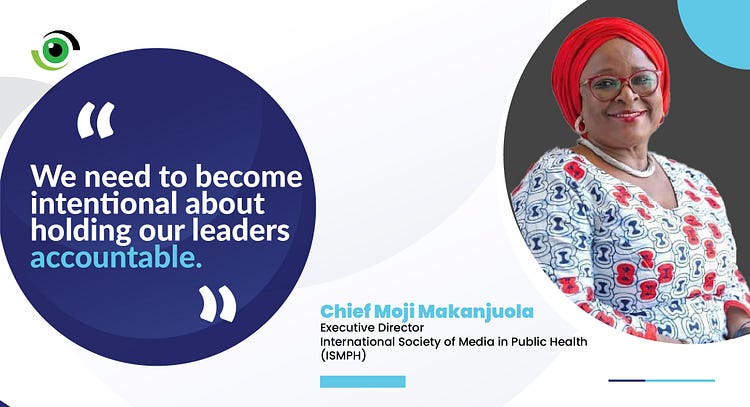
While Nigeria has been able to formulate multiple policies to address the population growth rate, implementation remains a challenge, especially at the state level where capacity and monitoring of policy implementation has fallen short. The National Population Policy seeks to harness Nigeria’s demographic dividend to achieve sustainable development. However, for the country to make the necessary investment to meet the demographic dividend window, decisive action must be taken to address Nigeria’s population growth by first investing in family planning services to improve the demand for family planning services as well as improving access.


